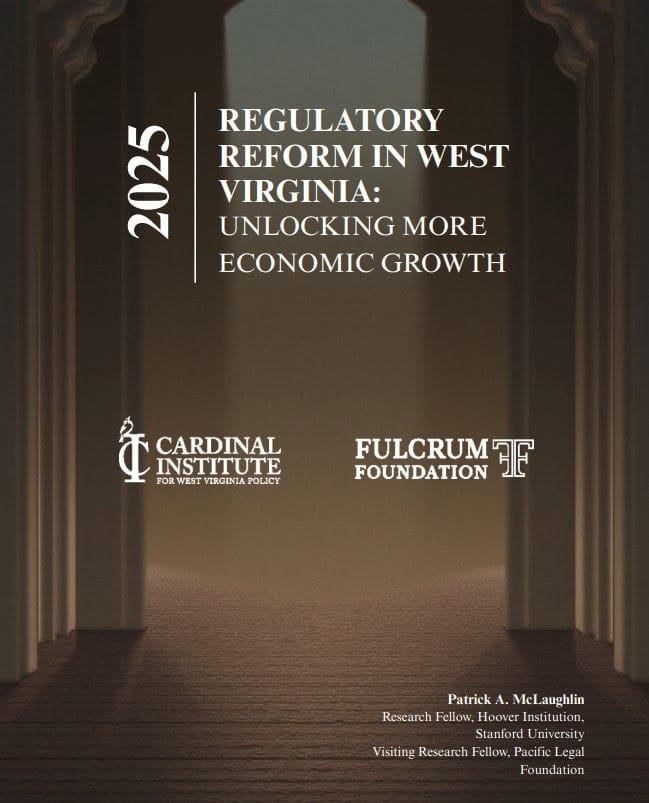
Let Teachers Teach
Teachers Are Struggling in West Virginia with Student Behavior
Recent testimony from West Virginia teachers has shed light on a concerning, though not unexpected, reality: student behavior in classrooms is out of control, making effective teaching nearly impossible. However, this issue is not without its explanation — and, more importantly, its solution.
Schools have strayed far from their primary mission of academic performance and have slowly burdened teachers with responsibilities far outside of their roles and qualifications. It’s time to return to a system where teachers can teach, and students can learn in a safe orderly environment of high expectations that will prepare them for future success.
Once centers of academic learning with a single clear mission, schools have now become responsible for addressing mental health, social work, racial equality, and even conflict mediation. Teachers are expected to be educators, counselors, social workers, and behavioral interventionists. The emotional toll of doing so many jobs is immense. This is not only evidenced by the testimony of these teachers but also by a national teacher shortage.
Will Hiring More Staff Help Teachers?
In an earnest effort to relieve the pressure of all of these demands, schools have responded by hiring additional staff to support these extraneous areas. However, these staff often lack the qualifications or expertise necessary to adequately address the issues. Despite there being agencies outside of the school system that exist to address mental health and social services, schools have absorbed these roles without sufficient expertise or any real accountability.
This can be easily proven by dozens of studies that show the extreme rate at which the hiring of administrators and support staff has outpaced the increase in the number of teachers and students tenfold. Despite all this extra staff and money spent, academic outcomes have not improved.
And it’s not hard to figure out why. It is a tale as old as time, ask any teacher you know and they will tell you the exact same thing. A student is disruptive, the teacher gives multiple warnings and makes the mandatory phone call home. She documents everything.
Eventually, she gets fed up and buzzes the office to have the student removed from her classroom. The student is then promptly referred to an administrator or guidance counselor, who validates their feelings and reassures them that their behavior is okay. After this conversation, the student is given a piece of hard candy and sent back to class.
Teaching students that their feelings are beyond critique is possibly the worst failure of public schools in the last decade. Sending students out into the world believing that their feelings can drive their behavior without consequences will lead to nothing but abject failure.
Bring High Expectations Back to Classrooms
As a civics and government teacher, I can’t help but use the age-old “fire in a crowded theater” adage. Just as the limits of your freedom of speech run out the moment they impede someone else’s rights, the right of students to express themselves does not override the right of the others in the room to quality education. When one student’s behavior disrupts the classroom, that student should be removed so the remaining students have the opportunity to learn.
I believe there are a lot of parents out there who would be outraged to find out how much learning loss occurs for their student because one disruptive student dominates the majority of the teacher’s time.
It is time to reclaim the classroom for learning and set high expectations for both academics and behavior. Teachers should be able to grade on merit and hold students accountable for their own progress. Students who prevent others from learning should be removed from the classroom until the parent physically shows up at the school and engages in the process of returning the student to the classroom.
Setting the bar high for academic and behavioral expectations requires a great deal of front-loading. Administrators, districts, and parents need to empower teachers to enforce classroom discipline without fear of backlash. This won’t be easy. It is very difficult at first to create accountable systems. People will naturally feel aggravated, and there will no doubt be failures. But the long-term benefits far outweigh the short-term discomforts.
A cost-free, easily accessible start to setting high behavioral expectations that will result in better outcomes is to create phone-free schools. Recent research shows phone-free environments improve learning outcomes and student well-being. And schools that have gone phone free are reporting higher student engagement and far fewer behavioral issues. This is no doubt a collective action problem, but schools and parents can band together to make this simple change that does not require hiring anyone or spending any money and could potentially have an enormous impact on the school culture.
Schools Need More Parent Accountability Not More Money
West Virginia could fall back on the same approach utilized for decades in public schools. They could throw more money at the problem, hiring more unqualified staff that cannot address the core issues affecting classroom learning. But it hasn’t worked so far because it is an illusion of support that merely shifts the burden around to more people without solving the underlying problems.
Ultimately, parents are accountable for their children’s behavior. Requiring them to pick up disruptive students when necessary is part of the job of being a parent. We should support teachers and schools by insisting that parents hold their children accountable for their behavior inside the school. When behavior is disruptive and robs others of an opportunity to learn, parents should remove their children from the classroom.
The cultural shift that has placed emotional validation above academic excellence is just that cultural. No evidence supports that schools acting as counselors have done anything to improve the education outcomes in this country. Because there is a science to education, teachers should have the opportunity to learn and grow in that role rather than struggling with the burden of ancillary tasks they never signed on for.
Schools are not social service centers. It’s time to let teachers teach.








